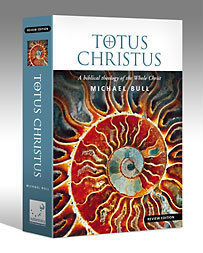Wormwood
The Third Trumpet
De-Ascension – the Temple judged
The third angel blew his trumpet, and a great star fell from heaven, blazing like a torch,
 After the ascension of Christ, Satan was expelled from his “ministry” before God as the Accuser of man. Like the evil twin of the blazing torch that measured Abram’s sacrifices, he was then used by God to bring an end to the Covenant.
After the ascension of Christ, Satan was expelled from his “ministry” before God as the Accuser of man. Like the evil twin of the blazing torch that measured Abram’s sacrifices, he was then used by God to bring an end to the Covenant.
and it fell on a third of the rivers and on the springs of water. The name of the star is Wormwood. A third of the waters became wormwood, and many people died from the water, because it had been made bitter.
These first three trumpets concerned the Land (Judah), the Sea (the world empire) and the springs of water (the Temple). This same order began the song of ascension, Psalm 24:
“The [Land] is the Lord’s and the fullness thereof, the world and those who dwell therein, for he has founded it upon the seas and established it upon the rivers.”
These three levels describe the garden of Eden as it was recreated in the Restoration. The firmament above the empire extended over the Land of Israel and the Sea of the nations. Springs of water came up from under the Land (Genesis 2:6) to support the life of the Temple. From there, a single river flowed from the Laver towards the east, towards Babylon. Like Solomon in his marriages, Judah began imitating the daughters of men instead of converting them by her witness. The doctrines of the empire were flowing upstream into the Temple. But with the coming of Christianity, the inadvertent sin became “high-handed”
and God gave them up to their demonic teachings (Mark 7:7; Titus 1:14). James Jordan writes:
“The bitter waters are the poisonous doctrine that flows from the corrupted Temple, in contrast to the laver of cleansing water that God had put there. Here also we find the first of the seven names of Satan in Revelation: Wormwood, a poisonous plant.”1
The reference to wormwood is high calibre and loaded. It takes us back again to the curses upon idolaters in Deuteronomy 29 (v. 18). It also brings the Edomite (Esau) Herods into the picture as the visible cause of the bitterness through their “marriages” with the daughters of men—Hellenistic Rome (Genesis 26:35)2. In Exodus 1, Pharaoh made the Hebrews’ lives bitter with hard bondage. In the wilderness, the Israelites faced death because the waters were bitter (Marah). In Ruth 1, Naomi wanted to be called Mara (bitter) because the Lord had made her barren. There are others, but the most significant might be Numbers 5. The priest administered “the bitter water that brings a curse” to the woman suspected of adultery.
Joseph’s Mara (Mary) was innocent, but Herod’s harlot was guilty.
____________________
1 James B. Jordan, The Vindication of Jesus Christ, p. 49-50.
2 Literally translated, Esau’s wives were “bitterness of spirit” to Isaac and Rebekah.

























